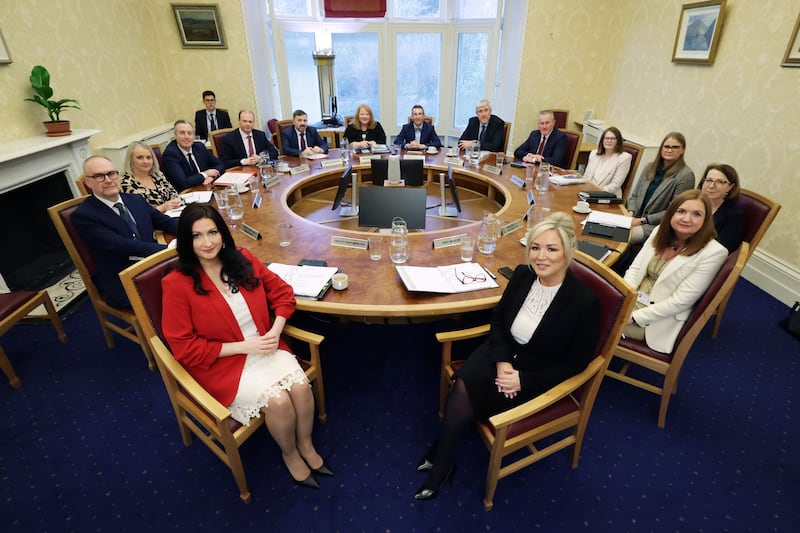As a Derry man and former Irish Ambassador, I have taken a keen interest in the fortunes of Magee College over the years and have witnessed local dismay at its prolonged decline and deconstruction.
This is above all true in respect of the humanities where Derry in its own right, in Northern Ireland, has a proud tradition and visibility second-to-none.
I am, therefore, delighted to welcome the step taken by the Vice Chancellor of Ulster University personally to lead an open day in Magee and to engage in public discussion about its future.
I especially congratulate Dr [Paul] Bartholomew on his consolidation of a strong medical faculty in Magee and on his openness to fresh ideas for the further development of the campus.This is a most opportune if long-overdue initiative.
Clearly, any university must be deeply rooted in its regional, historical and cultural environment and contribute to the enrichment and welfare of the community in which it is based.
The new medical emphasis rightly takes account of the crucial role of Altnagelvin in the life of Derry over six decades.
Similarly, proposals for the embrace by Magee of cutting-edge technology for local job creation is very encouraging.
On quite another level, Derry has today the capability of becoming an important centre for new thinking as a ‘City of Culture and Peace’, in stark contrast to its previous, albeit brief, disabling reputation as a place of foment and division.
Indeed, Derry’s antiquity, multi-layered history, international outreach and geography are essential underpinnings of its contemporary identity and of its economic and commercial potential.

Magee can play a crucial role in assisting Derry’s growth by incorporating the city’s remarkable history, international connections and contribution to the humanities within its own plans for future development.
This will not only strengthen the university’s international image but allow it to build bridges to prominent American universities, many of which have thriving ‘Irish Studies’ departments.
Derry is the city of Colmcille, the northern medieval High Kings, the London Guilds, the failed Jacobite siege and the emigration point for the American ‘Scotch-Irish’ and for many Irish-Americans.
It is the city of the famed Earl of Bristol, of the Lawrence Brothers of imperial distinction and other Anglo-Irish families of military renown.
It is the city of the once world-leading (female-employing) shirt industry, of the North Atlantic naval campaigns in two world wars and, more recently, it has been the crucible of civil rights and the beginnings of the northern conflict, and an epicentre of conflict resolution.
Quite obviously, Irish historical studies in its broadest sense should feature prominently in the identity of Magee.

As the city of world-famous Nobel Laureate John Hume, and his one-time opponent turned peace advocate, Martin McGuinness, Magee is well placed to lead the way in peace and conflict resolution studies in Ireland.
The John Hume and Tip O’Neill lecture series must be returned to the custody of Magee.
The prolonged dismantlement of Magee was clearly a big mistake which prevented Northern Ireland’s second university from building a strong international reputation so essential for all universities today.
With goodwill and a programme of internal rebalancing, this major error can be reversed over time to the benefit of north-west Ireland and Ulster University as a whole.
To get things started, may I suggest that the education authorities of Northern Ireland establish a high-level and specialised independent scrutiny commission to oversee and assist the technicalities that are involved in internal restructuring, academic mobility and inter-faculty readjustment.
This can and should be undertaken with the practical support of both governments in London and Dublin within the framework of their ongoing dialogue and cooperation.
JAMES SHARKEY, Former Irish ambassador to countries including Russia, Australia, Japan and Switzerland and Ireland’s permanent representative to the Council of Europe, chairing the Human Rights Committee








